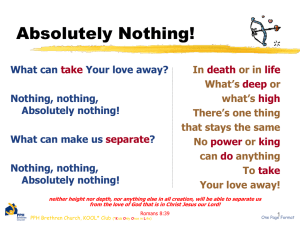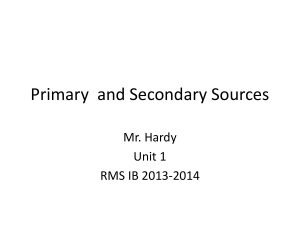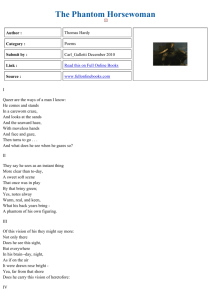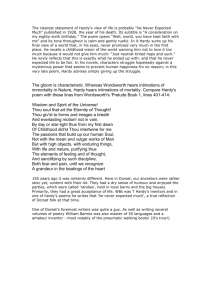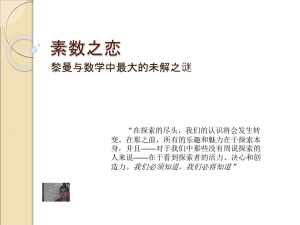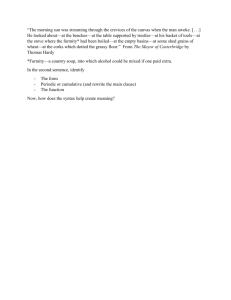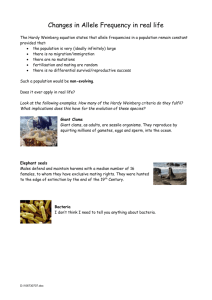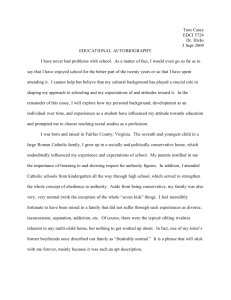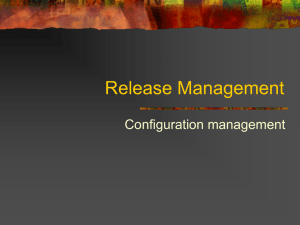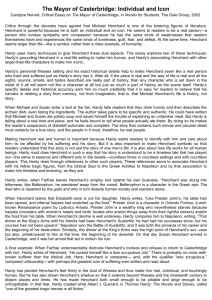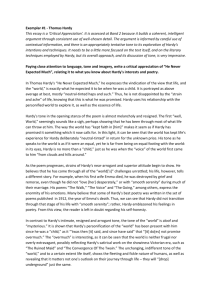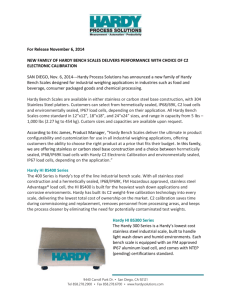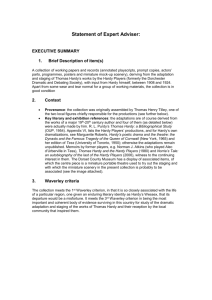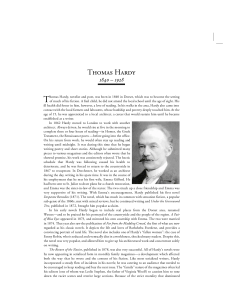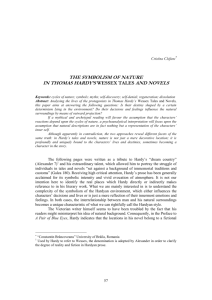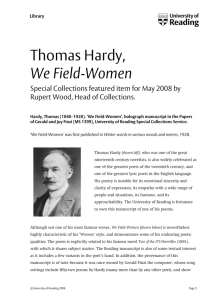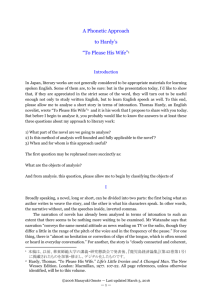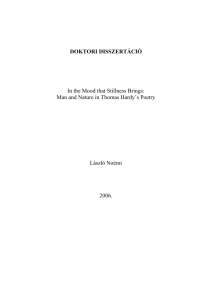1 - Discussion transcript VSSTE Conference 2005 Tape #: 8 Session
advertisement
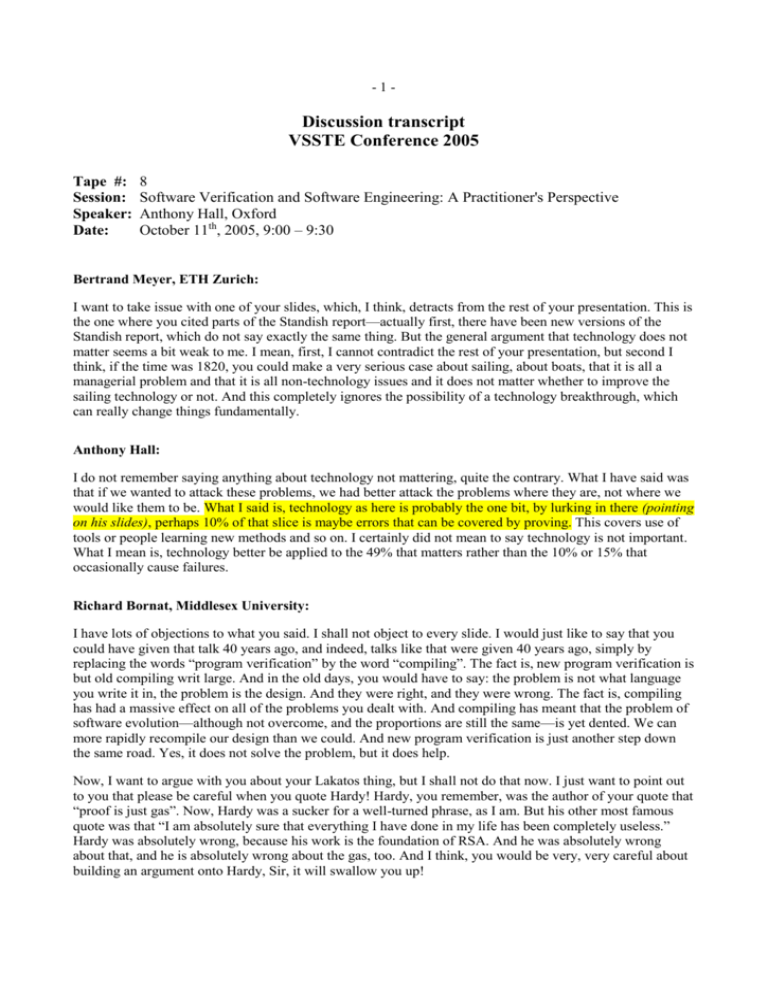
-1- Discussion transcript VSSTE Conference 2005 Tape #: Session: Speaker: Date: 8 Software Verification and Software Engineering: A Practitioner's Perspective Anthony Hall, Oxford October 11th, 2005, 9:00 – 9:30 Bertrand Meyer, ETH Zurich: I want to take issue with one of your slides, which, I think, detracts from the rest of your presentation. This is the one where you cited parts of the Standish report—actually first, there have been new versions of the Standish report, which do not say exactly the same thing. But the general argument that technology does not matter seems a bit weak to me. I mean, first, I cannot contradict the rest of your presentation, but second I think, if the time was 1820, you could make a very serious case about sailing, about boats, that it is all a managerial problem and that it is all non-technology issues and it does not matter whether to improve the sailing technology or not. And this completely ignores the possibility of a technology breakthrough, which can really change things fundamentally. Anthony Hall: I do not remember saying anything about technology not mattering, quite the contrary. What I have said was that if we wanted to attack these problems, we had better attack the problems where they are, not where we would like them to be. What I said is, technology as here is probably the one bit, by lurking in there (pointing on his slides), perhaps 10% of that slice is maybe errors that can be covered by proving. This covers use of tools or people learning new methods and so on. I certainly did not mean to say technology is not important. What I mean is, technology better be applied to the 49% that matters rather than the 10% or 15% that occasionally cause failures. Richard Bornat, Middlesex University: I have lots of objections to what you said. I shall not object to every slide. I would just like to say that you could have given that talk 40 years ago, and indeed, talks like that were given 40 years ago, simply by replacing the words “program verification” by the word “compiling”. The fact is, new program verification is but old compiling writ large. And in the old days, you would have to say: the problem is not what language you write it in, the problem is the design. And they were right, and they were wrong. The fact is, compiling has had a massive effect on all of the problems you dealt with. And compiling has meant that the problem of software evolution—although not overcome, and the proportions are still the same—is yet dented. We can more rapidly recompile our design than we could. And new program verification is just another step down the same road. Yes, it does not solve the problem, but it does help. Now, I want to argue with you about your Lakatos thing, but I shall not do that now. I just want to point out to you that please be careful when you quote Hardy! Hardy, you remember, was the author of your quote that “proof is just gas”. Now, Hardy was a sucker for a well-turned phrase, as I am. But his other most famous quote was that “I am absolutely sure that everything I have done in my life has been completely useless.” Hardy was absolutely wrong, because his work is the foundation of RSA. And he was absolutely wrong about that, and he is absolutely wrong about the gas, too. And I think, you would be very, very careful about building an argument onto Hardy, Sir, it will swallow you up! -2Anthony Hall: Well, I have to say, I had some doubts about quoting Hardy. However, both of those statements, of course, are propaganda statements. His statement about that he is absolutely certain that everything is useless, was a statement of propaganda. It appears in A Mathematician's Apology. Richard Bornat: (word incomprehensible) Anthony Hall: Well, precisely, it was a statement which he would like to be true. He would like to be pure and isolated from the real world. Richard Bornat: (incomprehensible) Willem-Paul de Roever, University of Kiel: [laughing] I would like to support the speaker after these attacks, because it is laughable. Well, the point is, we all know mathematical proofs, and I have given extremely many methodical proofs in my lifetime. But if I go to John Rushby and Shankar here, we all know that when you try to formalize any mathematical proof it is full of holes, there are all sorts of mistakes, but it is very seldom the case that the theorem is completely incorrect. So the point is that it is a sketch for communication, and the poor sucker who has to formalize it in PVS or Isabelle is very proud that he found so many errors. But at the end, he did not find an error in the theorem. So, I would like to have Rushby and Shankar cooperate on this, because I think that is relevant. What I myself thought is, logically speaking, you do not give place to bottom-up development, and you are so much experienced in developing software, so you certainly know where to put bottom-up in this picture. That is, what I wanted to say.
